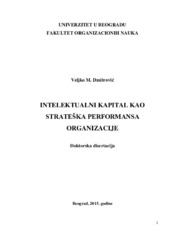Please use this identifier to cite or link to this item:
https://rfos.fon.bg.ac.rs/handle/123456789/83Full metadata record
| DC Field | Value | Language |
|---|---|---|
| dc.contributor.advisor | Žarkić-Joksimović, Nevenka | |
| dc.contributor.other | Knežević, Snežana | |
| dc.contributor.other | Poznanić, Vladimir | |
| dc.creator | Dmitrović, Veljko | |
| dc.date.accessioned | 2023-05-12T09:45:35Z | - |
| dc.date.available | 2023-05-12T09:45:35Z | - |
| dc.date.issued | 2015 | |
| dc.identifier.uri | https://nardus.mpn.gov.rs/handle/123456789/4565 | |
| dc.identifier.uri | http://eteze.bg.ac.rs/application/showtheses?thesesId=2414 | |
| dc.identifier.uri | https://fedorabg.bg.ac.rs/fedora/get/o:10421/bdef:Content/download | |
| dc.identifier.uri | http://vbs.rs/scripts/cobiss?command=DISPLAY&base=70036&RID=515519386 | |
| dc.identifier.uri | https://rfos.fon.bg.ac.rs/handle/123456789/83 | - |
| dc.description.abstract | Sa globalizacijom meĊunarodnog poslovanja i upravljanje intelektualnim kapitalom dobija sve više na znaĉaju. Danas preovlaĊuje shvatanje da je efektivan menadţment intelektualnim kapitalom kljuĉ uspeha organizacija. Kljuĉni resurs i baza poslovanja savremene organizacije postaje intelektualni kapital. Poĉetkom devedesetih godina dvadesetog veka koncept intelektualnog kapitala dobija na znaĉaju. Prouĉavanjem ovog koncepta raste znaĉajno povećanje trţišne vrednosti organizacije u odnosu na njenu knjigovodstvenu vrednost. Za razliku od opipljive imovine ĉija vrednost upotrebom opada tokom vremenskog perioda, pravilnom upotrebom intelektualnog kapitala povećava se vrednost organizacije. Od menadţmenta se oĉekuje da u uslovima drastiĉnih promena u okruţenju pokuša da uoĉi i iskoristi šanse i prednosti, a slabosti minimizira ili otkloni. Jedino na pomenuti naĉin dolazi do rasta i razvoja organizacije. Intelektualni kapital ima operativni i strategijski znaĉaj za organizaciju. Danas, organizacije pokazuju sve veće interesovanje za upravljanje intelektualnim kapitalom. Intelektualni kapital kao vrstu nematerijalne imovine ĉine ljudski kapital, strukturni i relacioni kapital. Pod intelektualnim kapitalom ne podrazumeva se samo znanje s kojim organizacija raspolaţe, već i kompetencije zaposlenih, kao i organizaciona struktura, poslovni procesi, intelektualna svojina, korporativna kultura. Resursi, kako unutar organizacije, tako i eksterni resursi (odnosi sa kupcima, dobavljaĉima, distributerima, kao i drugim stejkholderima) isto su veoma vaţni. Intelektualni kapital sadrţi one faktore koji nisu obuhvaćeni u zvaniĉnim finansijskim izveštajima, ali su od vaţnosti za stvaranje vrednosti organizacije. Pravilnom upotrebom intelektualnog kapitala povećava se vrednost organizacije. | sr |
| dc.description.abstract | With globalization of international operation, intellectual capital management becomes more and more important as well. Nowadays, belief that the effective management of intellectual capital is a key to the success of organizations is prevailing. Intellectual capital becomes a key resource and a base of operations of a modern organization. In the early twenties of the last century, the concept of intellectual capital gained in importance. By studying this concept the market value of the organization is growing significantly in comparison to its book value. Unlike tangible assets whose value decreases by usage over time, proper use of intellectual capital increases the value of the organization. The management is expected that in the conditions of drastic changes in the environment tries to identify and use opportunities and strengths, and minimize or eliminate the weaknesses. Only in such a way, there comes the growth and development of the organization. Intellectual capital has the operational and strategic significance for the organization. Today, organizations are showing more and more interest in intellectual capital management. Intellectual capital as a type of intangible assets comprises of human capital, structural and relational capital. The intellectual capital does not involve only the knowledge available in the organization, but also the competences of the staff, as well as organizational structure, business processes, intellectual property, corporate culture. Resources, both internal and external resources (relations with customers, suppliers, distributors, and other stakeholders) are also very important. Intellectual capital includes those factors that are not included in the official financial statements, but are important for the creation of organizational values. | en |
| dc.language | sr | |
| dc.publisher | Univerzitet u Beogradu, Fakultet organizacionih nauka | |
| dc.rights | openAccess | |
| dc.rights.uri | https://creativecommons.org/licenses/by-nc-nd/4.0/ | |
| dc.subject | znanje | sr |
| dc.subject | vrednovanje intelektualnog kapitala | sr |
| dc.subject | upravljanje | sr |
| dc.subject | strateška performansa | sr |
| dc.subject | organizacija | sr |
| dc.subject | intelektualni kapital | sr |
| dc.subject | finansijsko izveštavanje | sr |
| dc.subject | strategic performance | en |
| dc.subject | organization | en |
| dc.subject | management | en |
| dc.subject | knowledge | en |
| dc.subject | intellectual capital | en |
| dc.subject | intellectual capital valuation | en |
| dc.subject | financial reporting | en |
| dc.title | Intelektualni kapital kao strateška performansa organizacije | sr |
| dc.title | Intellectual capital as a strategic performance of the organization | en |
| dc.type | doctoralThesis | |
| dc.rights.license | BY-NC-ND | |
| dc.identifier.fulltext | http://prototype2.rcub.bg.ac.rs/bitstream/id/1173/79.pdf | |
| dc.identifier.rcub | https://hdl.handle.net/21.15107/rcub_nardus_4565 | |
| dc.identifier.rcub | t-3602 | |
| dc.type.version | publishedVersion | |
| item.cerifentitytype | Publications | - |
| item.fulltext | With Fulltext | - |
| item.grantfulltext | open | - |
| item.openairecristype | http://purl.org/coar/resource_type/c_18cf | - |
| item.openairetype | doctoralThesis | - |
| Appears in Collections: | Doktorati | |
This item is licensed under a Creative Commons License


